A Vietnamese Spirit Uncorked: A Deep Dive with Daniel Nguyen of Song Cai Distillery
Photo courtesy of Song Cai Distillery
To celebrate World Gin Day, I am paying tribute to Song Cai Distillery, Vietnam’s first-ever gin founded by Daniel Nguyen in late 2018. Boasting an armful of accolades, including a rare double-gold win at the highly acclaimed San Francisco World Spirits Awards to being named one of the top 16 spirits in the world by Bloomberg, needless to say, Song Cai Distillery has had quite the star-studded journey so far.
Today, Song Cai Distillery is heralding a new wave of Vietnamese craft spirits flanking the shelves of leading bars and establishments in and outside of Vietnam - a commendable feat that only many can dream about. What is even more impressive is Song Cai’s humble beginnings as an at-home ‘moonshine’ created within the four walls of Daniel Nguyen’s one-bedroom apartment in Hanoi.
But no, this is not a ‘rags-to-riches’ story but rather one of grit, tenacity and a diehard daringness to create a first-of-its-kind Vietnamese spirit that bottles the spirit and quintessence of Vietnam and her people. Here, I deep dive into the origin, journey and future of this pioneering Vietnamese spirit with master distiller and founder Daniel Nguyen.
THE ORIGIN
Tell me about Song Cai Gin
Sông Cái Distillery is a first-of-its kind Vietnamese distillery bottling the spirit of Vietnam’s biodiverse terroir through gins and other spirits/beverages. Founded in late-2018 in Hanoi, Song Cai Distillery is Vietnam’s first gin distillery. Our gins are distilled using heirloom and native botanicals – fruits, flowers, herbs, and wood – unique to Vietnam.
The Vietnamese understanding of nature deals not only with water, land, and sky – but also with culture and spirituality. Rooted in this philosophy, Song Cai Distillery produces terroir-driven spirits that capture the flavours and provenance of Vietnam’s vast, biodiverse landscape of highlands and deltas.
Our name, Sông Cái, comes from the Vietnamese term for “mother river”. In the Vietnamese tradition, rivers are metaphorically representative of the notion of totality and origin: all forces of nature, life, and spirituality stem and flow from a holistic “mother river”. This concept is universal in Vietnam and to this day you can find localities all throughout the country that have their own Sông Cái. The name is also a homage to Vietnam’s history and tradition of matriarchy and the name was distinctly selected as a truly Vietnamese word and concept.
Photo courtesy of Song Cai Distillery
What makes Song Cai gin so unique?
Song Cai Distillery’s ethos views our brand as a conduit to showcase the very best and unique things that Vietnam has to offer through the medium of spirits and food and beverage in general. It’s not simply making spirits, such as gin, in Vietnam or using ingredients sourced from Vietnam, but rather, seeking ingredients native or heirloom to Vietnamese communities, approaching flavour combinations inspired by local communities, applying Vietnamese techniques and skills in combination with Western techniques to coax different flavours, and also using our bottle itself as a platform to showcase local artwork.
Photo courtesy of Song Cai Distillery
Ingredients aren’t acontextual (cannot be removed from context) and our approach to them should reflect that. We also spend a lot of time working with farmers and foragers to build a supply chain of heirloom and native botanicals and in some instances will collect and re-propagate more rare varietals and re-distribute back to the communities of origin.
Tell me about yourself - what is your background?
My background is in agriculture/agroforestry and community development. I worked previously on community economic development from my time in New Orleans, Louisiana, building supply chains for fisherfolk and farmers in Louisiana and Mississippi. My work translated to Vietnam where I worked beginning in the Mekong Delta and then moving to the North Central and Northern Highlands.
My work during that time focused on a combination of ethnobotany, natural resource management, and economic development as it pertained to forest land allocation in ethnic minority communities. I focused on the study and collection of heirloom botanicals and how it relates to community and cultural structures and how this translates into material natural resource management.
Founder Daniel Nguyen was working in the Mekong Delta and then moved to the North Central and Northern Highlands where he focused on the study and collection of heirloom botanicals and how it relates to community and cultural structures. Observing the strong relationship between heirloom botanicals and community development inspired him to enter the spirits industry. (Photo courtesy of Song Cai Distillery)
Why did you decide to create a gin?
The goal was to create a distillery that could make whisky and/or other spirits and address the issue of heirloom grains or commodity crops such as rice. Gin was a medium to allow us to utilize and highlight different aspects of terroir such as herbal medicine and fruits and has the added benefit of generating cash flow (1.5 months to 1 year) while products such as whisky are matured.
What was that process like for you?
The process has been quite a journey. It started in my 30m2 one-bedroom apartment in Hanoi – distilling in my kitchen/living room whilst macerating and experimenting on botanicals in my bedroom. Once the product was finalized it’s been a constant journey figuring out and building distribution in Vietnam as well as other markets such as Hong Kong, the UK, USA. As the business expands we’re constantly juggling supply chain and production on the backend and marketing, branding and distribution on the front end.
THE CHALLENGES
Photo courtesy of Song Cai Distillery
Can you describe your journey starting Song Cai?
I think Song Cai Distillery is not unlike other businesses. Running a business is not for the faint of heart – it is filled with challenges and uncertainty. There’s always a looming static sense of stress. I think social media often does a good job of romanticizing start-up journeys, but as difficult and insanely masochistic the ordeal of starting a business is, I think most entrepreneurs wouldn’t have it any other way.
Who was your first customer and how did you get your first customer?
First customer: Nguyen Qui Duc from Tadioto. Duc has been a supporter from day one and he has always been an ardent supporter of Vietnamese creatives.
Photo courtesy of Song Cai Distillery
What was the perception of Vietnameses craft gins back then?
Something new, different, and unexpected. People were uncertain of what to expect from a Vietnamese gin. The first comparison is almost always to Japanese gins – something our gins are inherently quite different from.
How did you change that perception?
It takes time and tenacity. Amongst the many things we did, I think the core was building community - going door-to-door, customer to customer. We were very fortunate to have gotten the attention of international media outlets as well as numerous awards that have definitely helped in changing the perception not only of Song Cai Distillery but also of Vietnam.
For me personally, I think Song Cai Distillery is not just changing the perception of our brand or Vietnamese spirits, but we find ourselves also changing the perception of Vietnam’s global brand identity as a country and community of people. We are constantly leveraging our platform to highlight various aspects of Vietnam and I think this also broadens our reach and appeal, from people who are interested in botany, cocktails, and art to culture.
Nguyễn Hoàng Tú Quyên (Sông Cái Competition 2020's 1st runner-up) (Photo courtesy of Song Cai Distillery)
What were some of the challenges you faced and how did you get over them?
Some challenges we faced were related to being the first mover. Distributors, especially in overseas markets, were initially uncertain of how a product from Vietnam would be received by the local markets. Overcoming these issues involved proving market demand.
A lot of time was spent understanding local markets and how to tap into these local markets to show distributors that the product would be well received.
Did you have any role models that you looked up to? Anyone you want to shout out to that supported your journey?
I look up to people who have shown a lot more grit and tenacity than I have. My parents come to mind - they are an amazing example of refugees going to a new country, starting from scratch and eventually becoming business owners.
Or Ly May Chan, a dear friend and part of the Song Cai farmer/forager network who single-handedly raised children during wartime and played a pivotal role in women's rights in Lao Cai and leading campaigns to combat illiteracy in ethnic minority communities. I think the odds that they faced far outweigh mine and definitely are great examples of how one’s success can be intertwined with others.
What kept you going throughout your journey?
Determination to build something greater than us. I always try to think of our success as tied to the success of others and we should be intentional about building an ecosystem.
We’re always trying to uplift bartenders, farmers, artists, etc. that have historically not had the opportunities afforded to Song Cai Distillery.
CREATING AN ICONIC VIETNAMESE BRAND
Photo courtesy of Song Cai Distillery
What were some of your proudest achievements?
In terms of media or accolades, we were selected by Bloomberg as 1 of 16 best spirits of 2021. We were so proud to share this with our supporters but most importantly, with the communities that farm and forage our ingredients.
One of the defining moments was going up to the mountains of Lao Cai and seeing one of the elder Red Dao community members had built a shelf and had been displaying all of our different Song Cai Distillery releases (unsolicited). It really is a testament to our community and the work they put into sourcing botanicals and making Song Cai Distillery what it is.
They’ve been with us through thick and thin. Covid-19 was not an easy time to run a business and our community partners were especially hard hit. We’re proud that we did not have to cut pay for any of our staff nor cut support for our farming or foraging communities.
What were some of your best memories?
Some of my best memories are with the community. Whether it be cold nights huddled over a fire in Lào Cai, or making drinks at house parties in California, or late-night bodega runs after a night of cocktails in New York - as an introvert I enjoy the slower-paced moments.
“Some of my best memories are with the community” says founder Daniel Nguyen (Photo courtesy of Song Cai Distillery)
What and to who do you attribute your success?
I attribute the success of Song Cai Distillery to many people. There is always an element of luck and timing to entrepreneurship, but to me, the backbone is a community and the people behind the brand/company. Our staff, the farmers, the bartending community, our core supporters, our distribution partners – all of these elements are crucial to our success and I don’t think Song Cai Distillery would be here without them.
What are some things you would do better if you had the chance?
I would invest more into our sustainability and human resources efforts. I think we can always be doing more to push the envelope to develop a more sustainable and inclusive company – not just in terms of environmental sustainability (we’d love to move to 100% plastic-free packaging for example) but we can always be improving how we create opportunity for our team to learn and grow professionally and personally.
I am proud that our core team is 100% Vietnamese (and over 80% women) and even with a mix of folks from our farming and foraging communities. I want to make sure Song Cai Distillery intentionally creates a long-term runway for them as the company continues to grow.
Women form the backbone of Song Cai’s team (Photo courtesy of Song Cai Distillery)
What are some things you would avoid if you had the chance?
I need to make better use of my gym membership. I think bad health is something I would like to be avoiding if I had the chance (both mental and physical).
What is one piece of advice you want to share with other aspiring Vietnamese spirit brands?
Song Cai Distillery hasn’t “made it” in any sense so I don’t know what advice I can offer in general to other spirit brands as we have so much to learn and much more to grow.
Perhaps anyone who is thinking about getting into spirits is to think long and hard about the difficulties of the industry (regulatory and health are some of the big ones that come to mind). I think the health one should be obvious – remember to drink responsibly and take care of your health (easier said than done).
Putting Vietnam on the map (Photo courtesy of Song Cai Distillery)
How does it feel to put Vietnam on the map?
I’m Vietnamese so it personally is extremely fulfilling. Growing up it was never a badge of honor to be Vietnamese and I think this sentiment still pervades today – even in the homeland (e.g. – the concept of “sính ngoại”). So it feels extremely good to show not only to the world but most importantly, to our own people that we can be shoulder to shoulder with the best of the best (sánh vai).
I think it’s inspiring when we get messages from Vietnamese entrepreneurs (many of which aren’t in the spirits industry) who tell us Song Cai Distillery inspired them to build a Vietnamese brand. We want to be part of this movement and community of a cohort of Vietnamese-owned brands.
Photo courtesy of Song Cai Distillery
What does it mean to be a Vietnamese brand?
I’d like to clarify that a Vietnamese brand doesn’t necessarily mean Vietnamese-owned. There are many layers to a Vietnamese brand. It can simply mean to be made in Vietnam or use ingredients from Vietnam. To me, however, I think a Vietnamese brand is more than just where it’s made or the ingredients used, but the spirit imbued in the brand, which is, as often said in America – doing it for the culture. And trust me, you don’t have to be of Vietnamese blood.
What inspires new gin flavours?
I’m inspired by different communities in Vietnam. I think Vietnam is a very diverse country in terms of terroir and community and with that comes diversity in terms of approach to flavour.
You can see this very clearly by eating and drinking your way through the different localities.
I start the development of new recipes by posing a contextual parameter – what would a gin from the Central Highlands look, smell, and taste like? From there we build out flavour profiles and associated ingredients to achieve this based on cultural and historical context.
THE ROAD AHEAD
Photo courtesy of TA Spirits
What does the future hold for Song Cai gin?
Moving forward we’re trying to continue and build global distribution coverage for Song Cai Distillery. In addition, we are moving to expand our portfolio to include products other than gin and to continue and evolve our branding.
Why TA gin? What is it and who is it for?
TA Spirits, which includes gin and vodka was developed as an entry-level product for the local Vietnamese market. Hence the name Ta - an inclusive “we” - for us, by us.
How do you intend to position TA Gin?
Definitely entry level - it’s priced competitively with your house spirit brands and the aesthetic is designed for a younger crowd (gen Z).
What are some differences between the consumer who consume Song Cai and TA Gin?
I would say age and familiarity with alcohol/cocktails. People who are going to TA are often more entry-level.

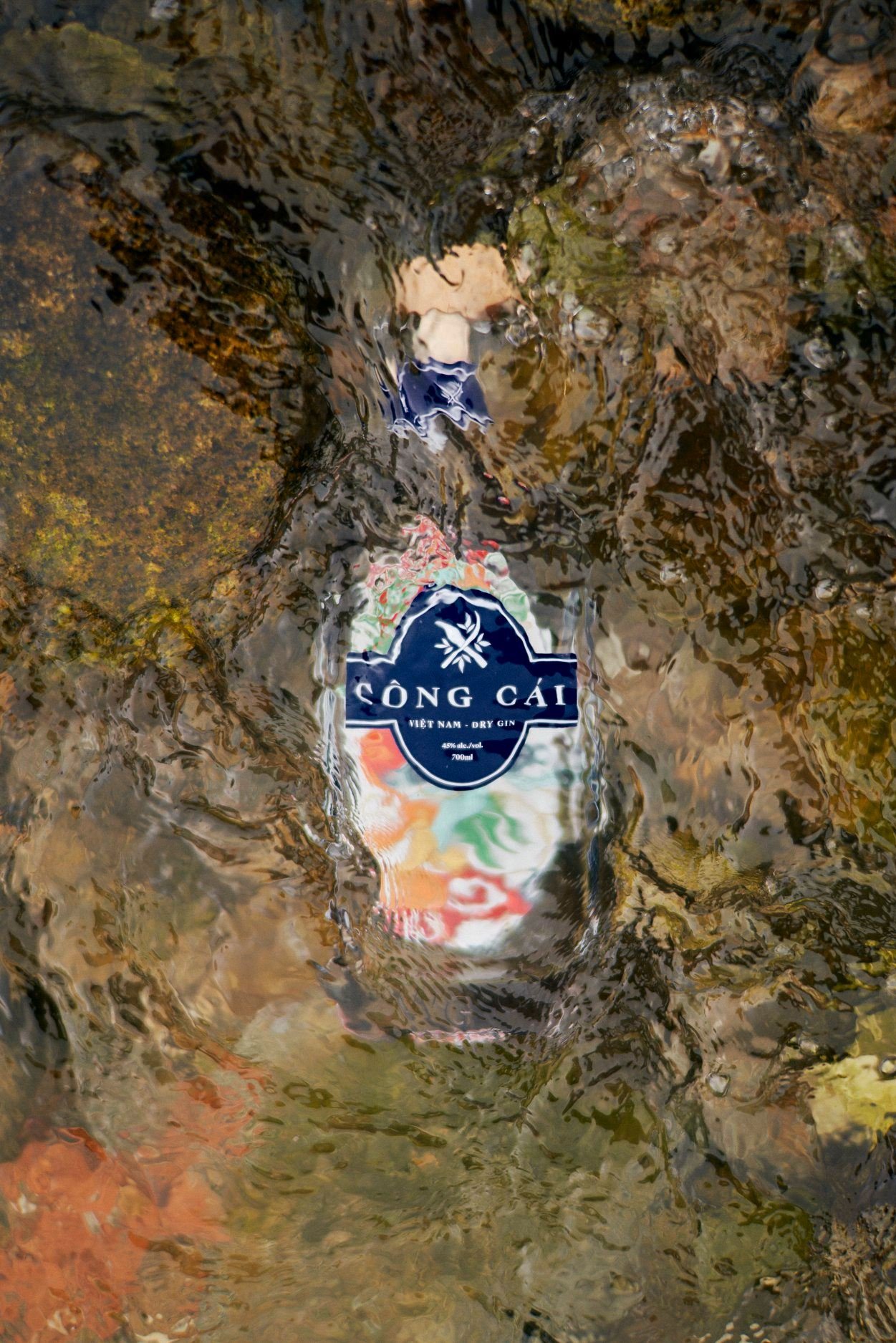
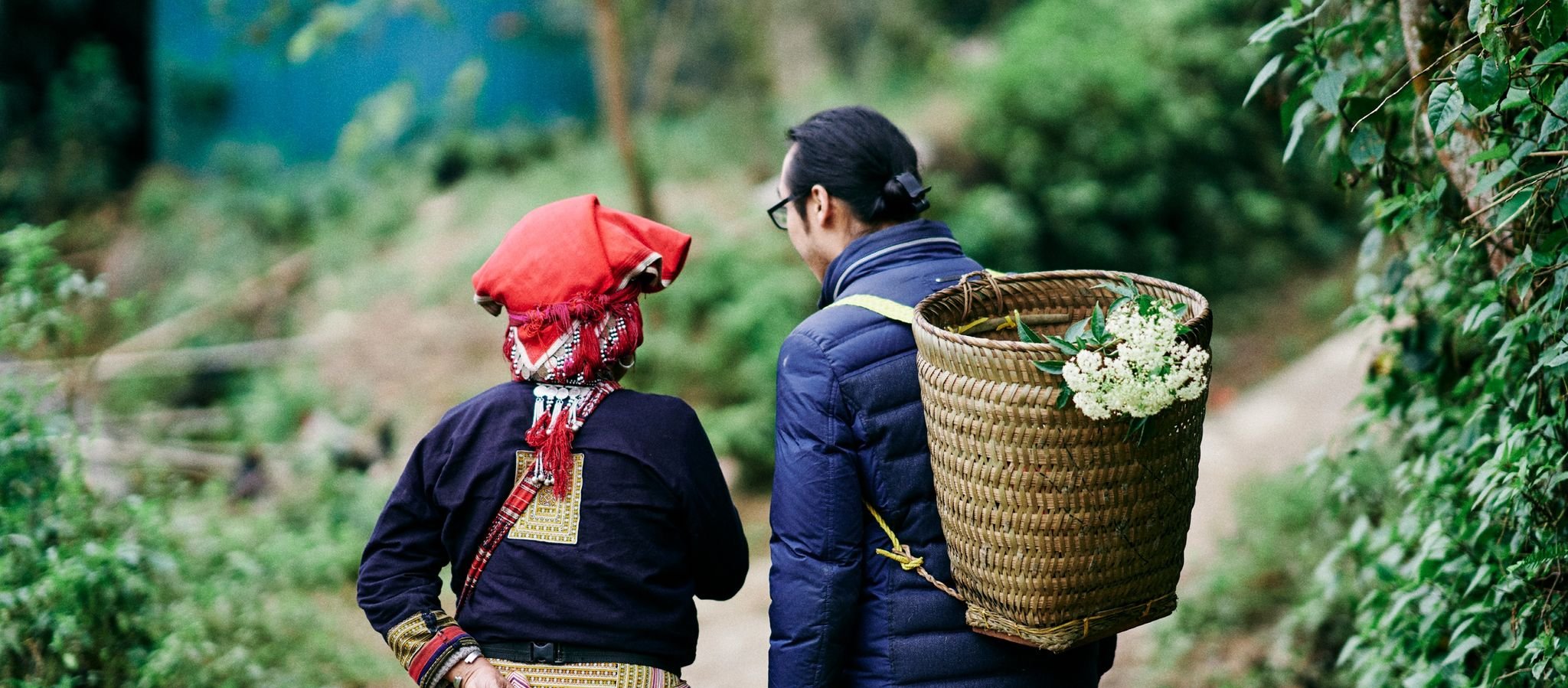
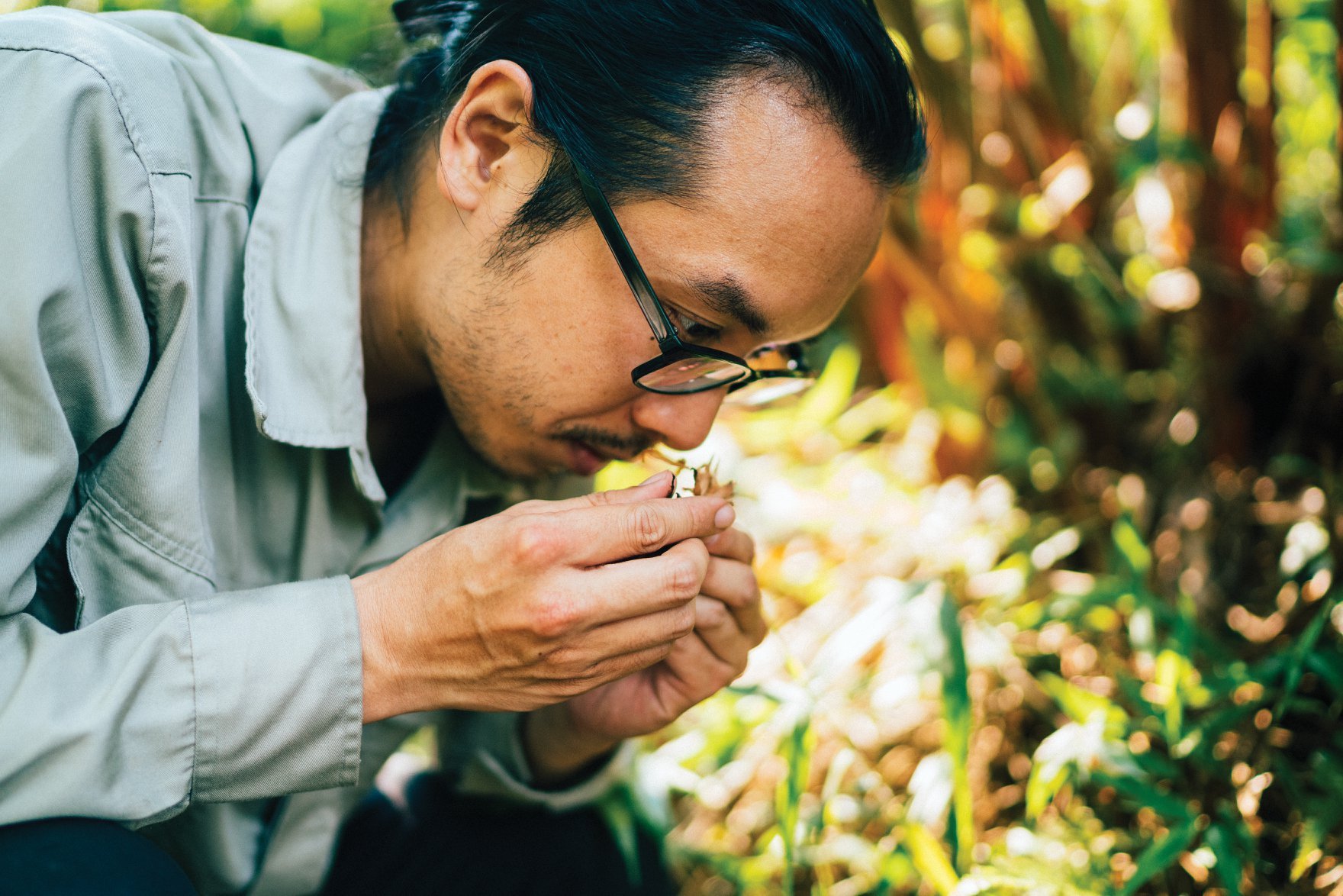

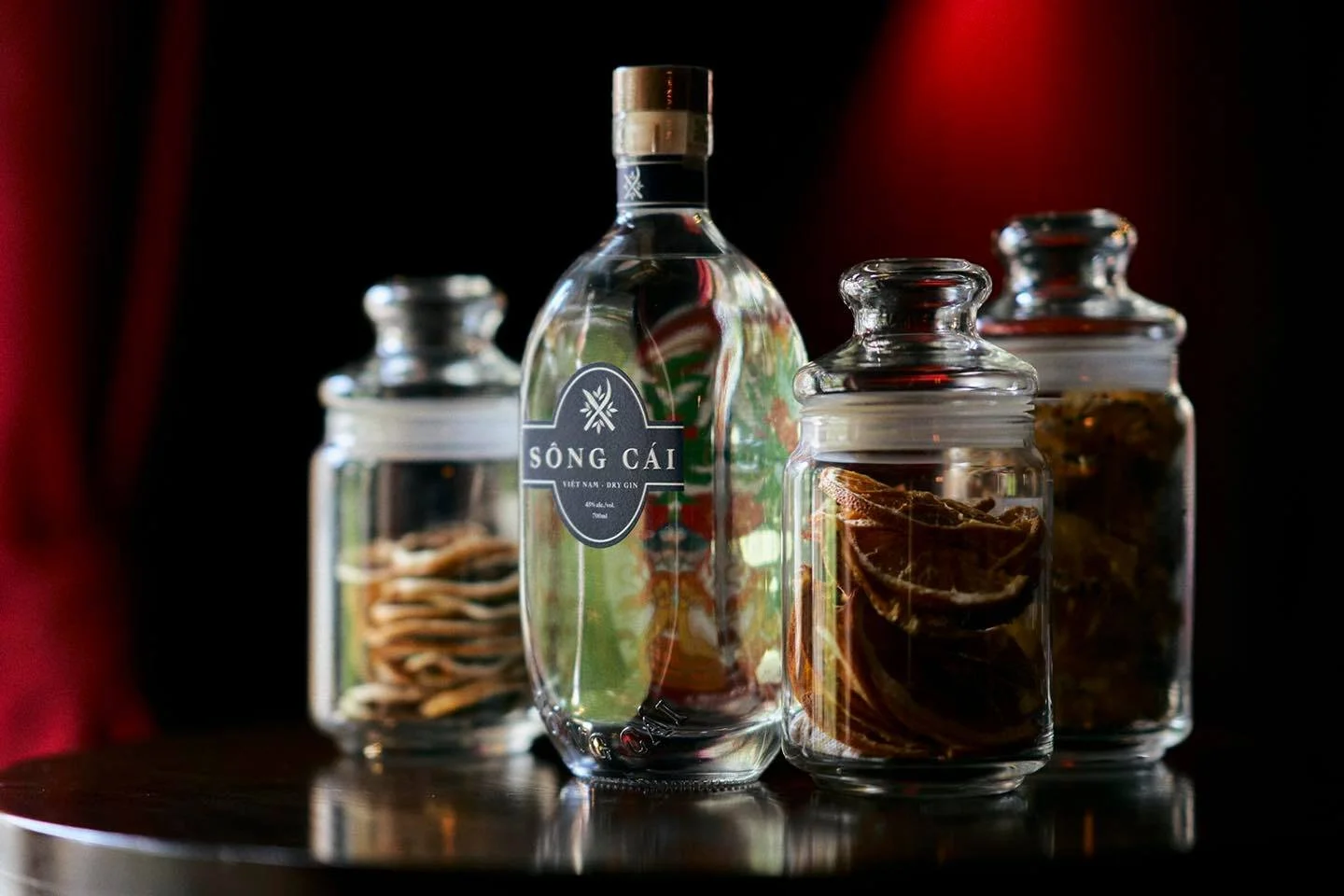


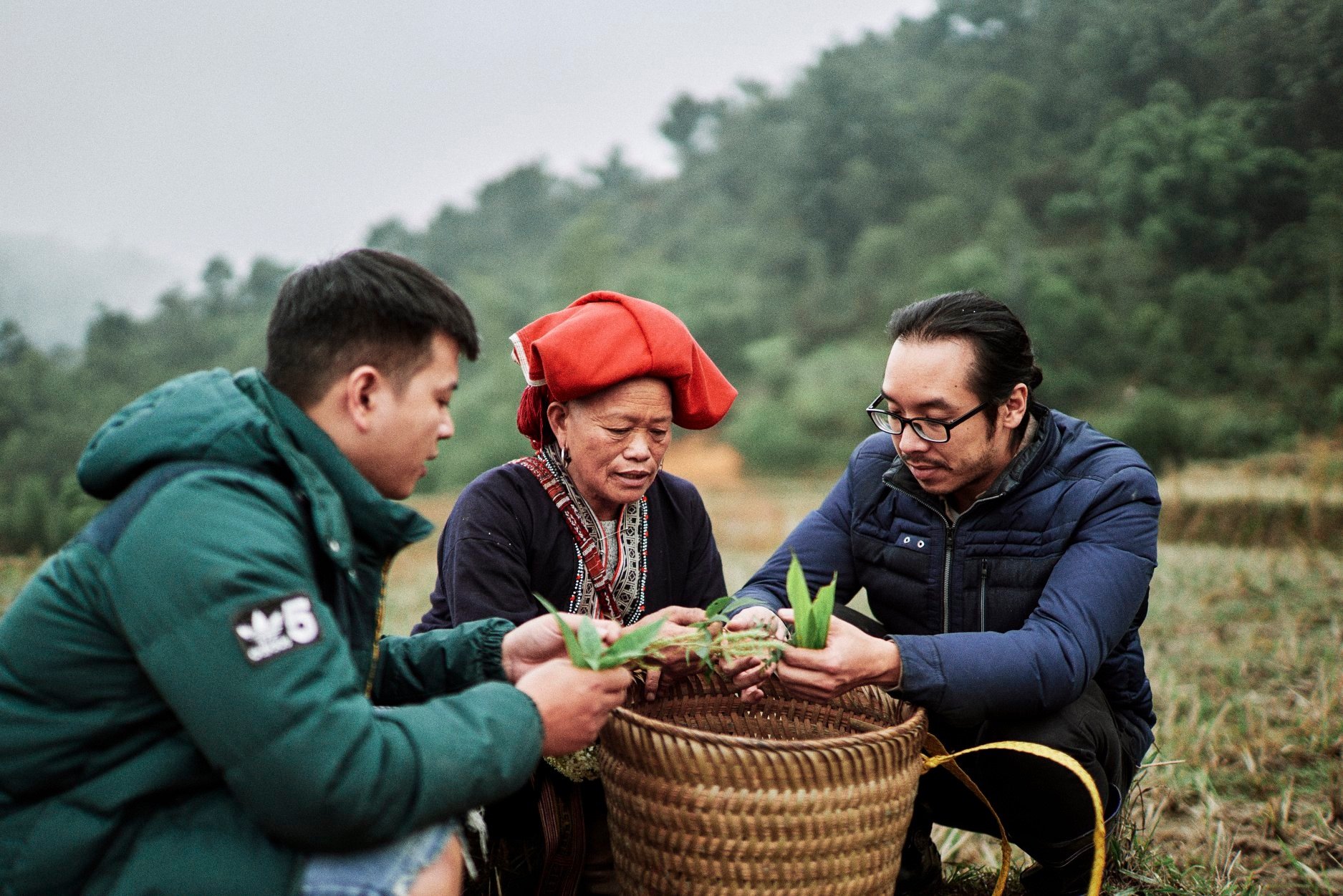



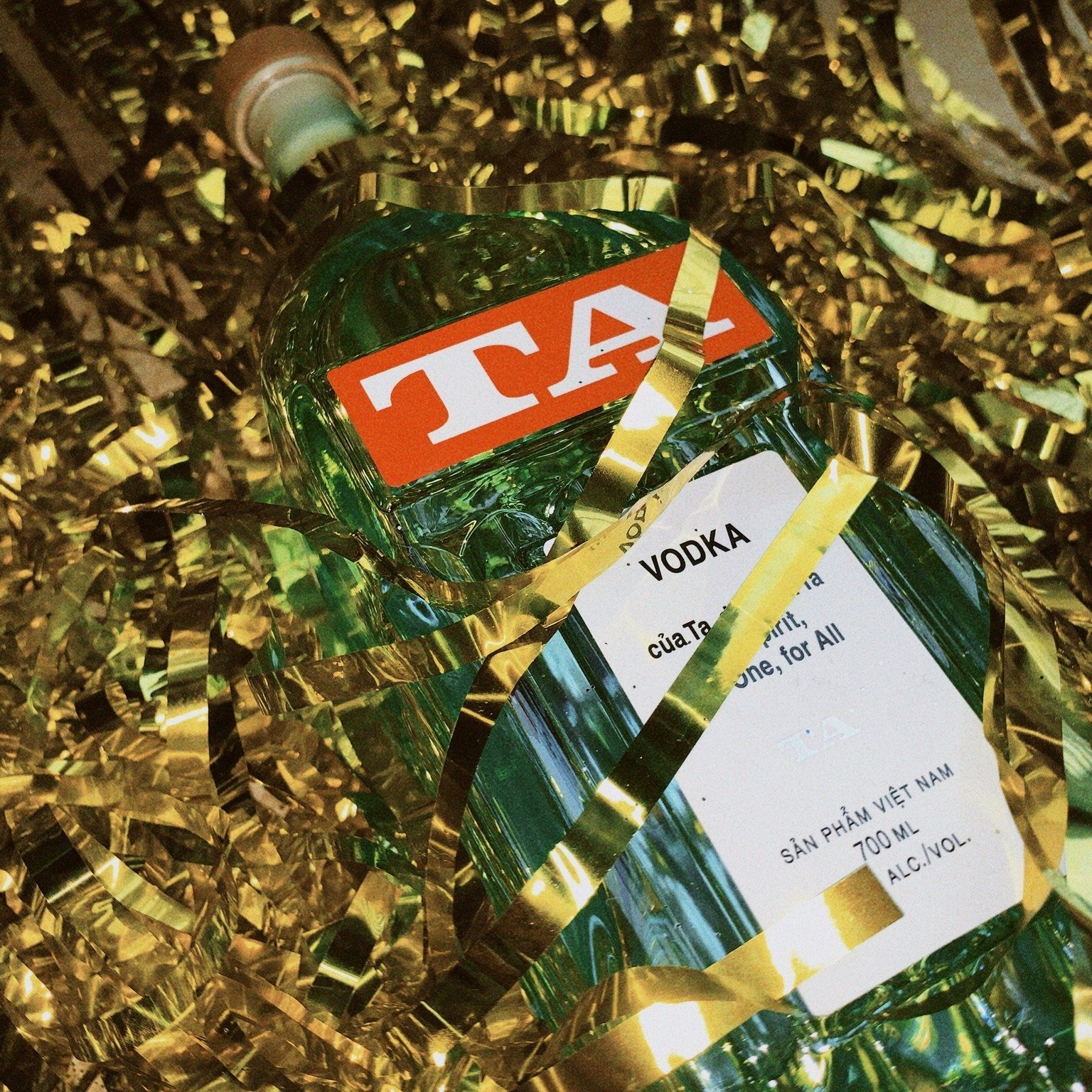

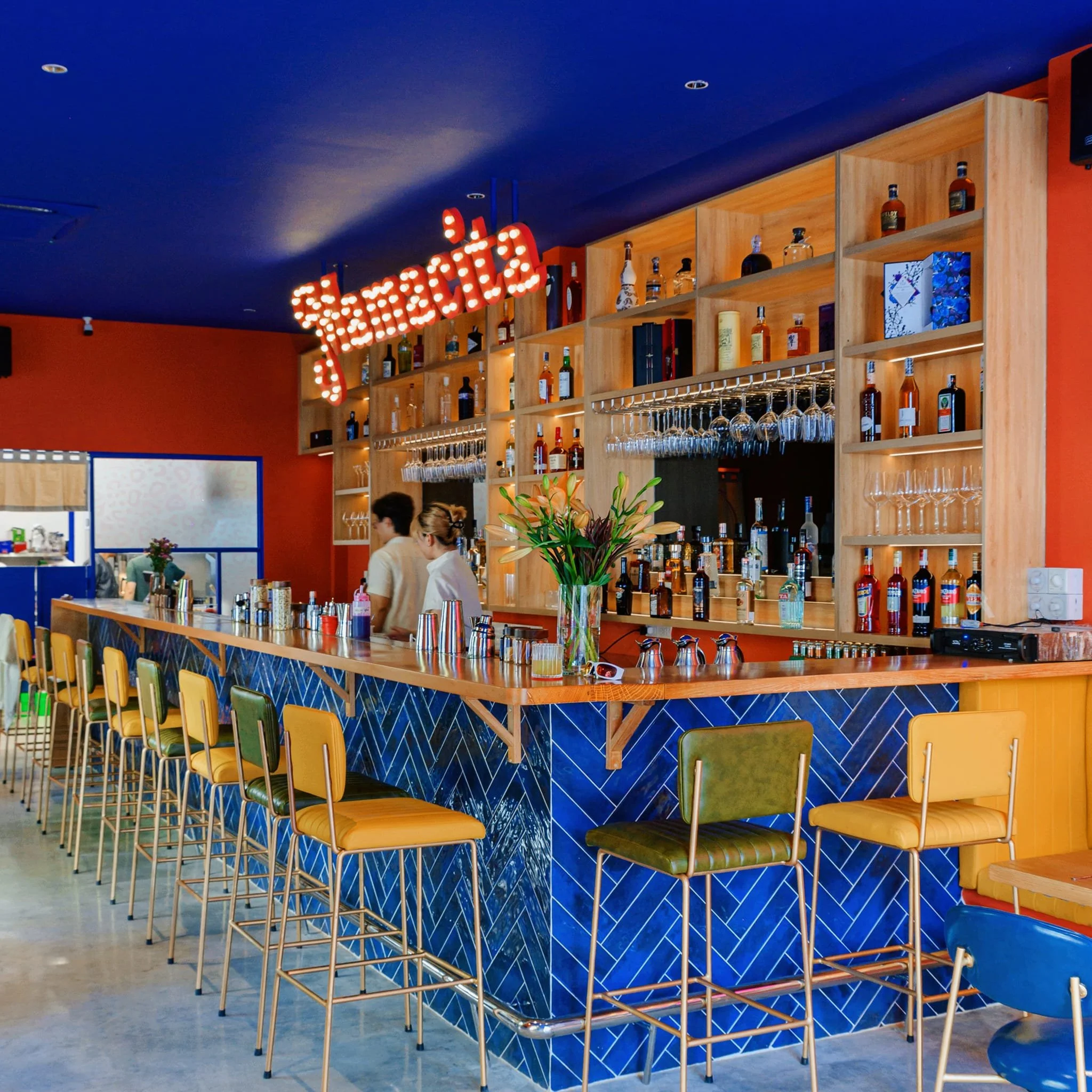
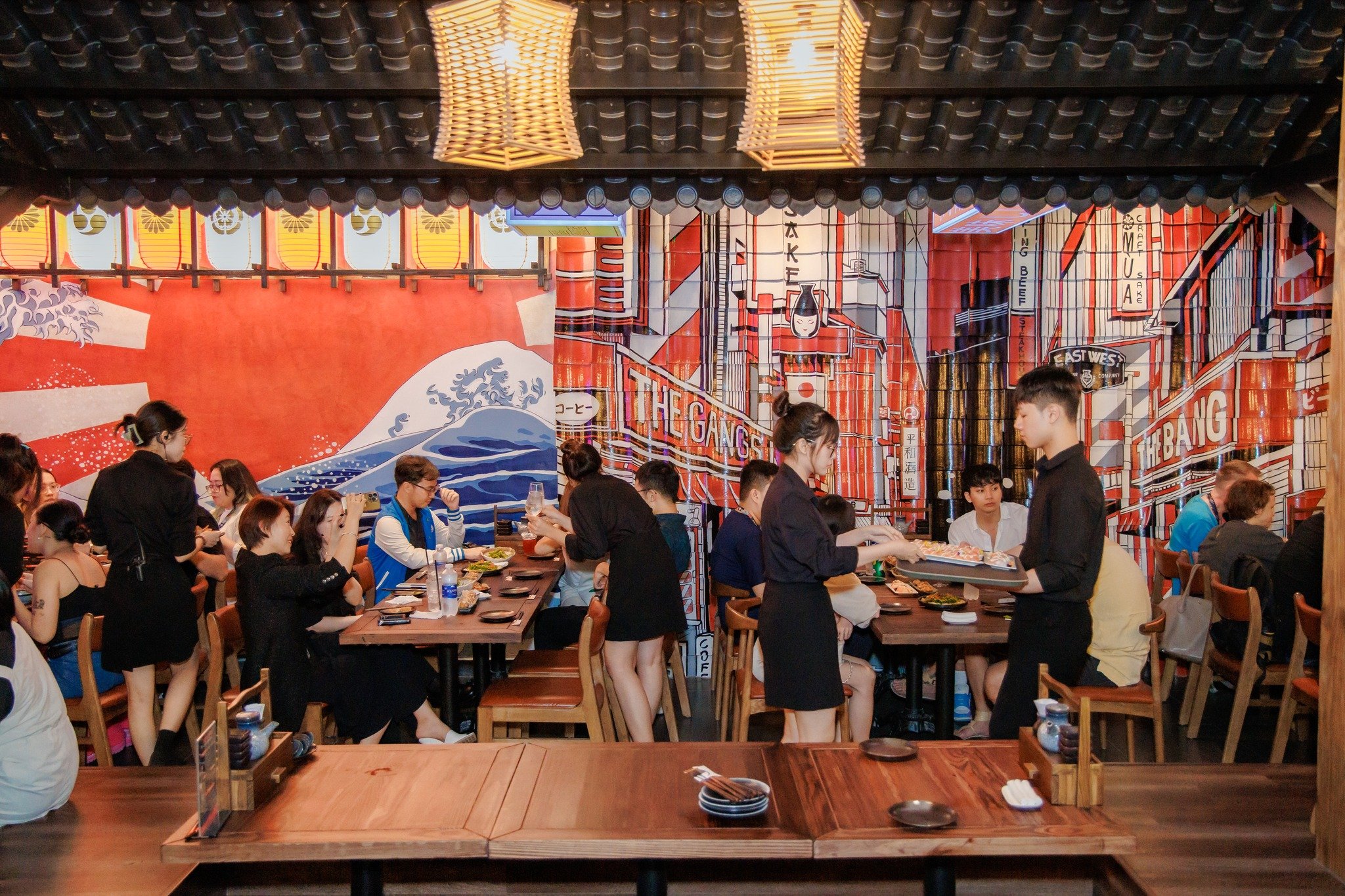
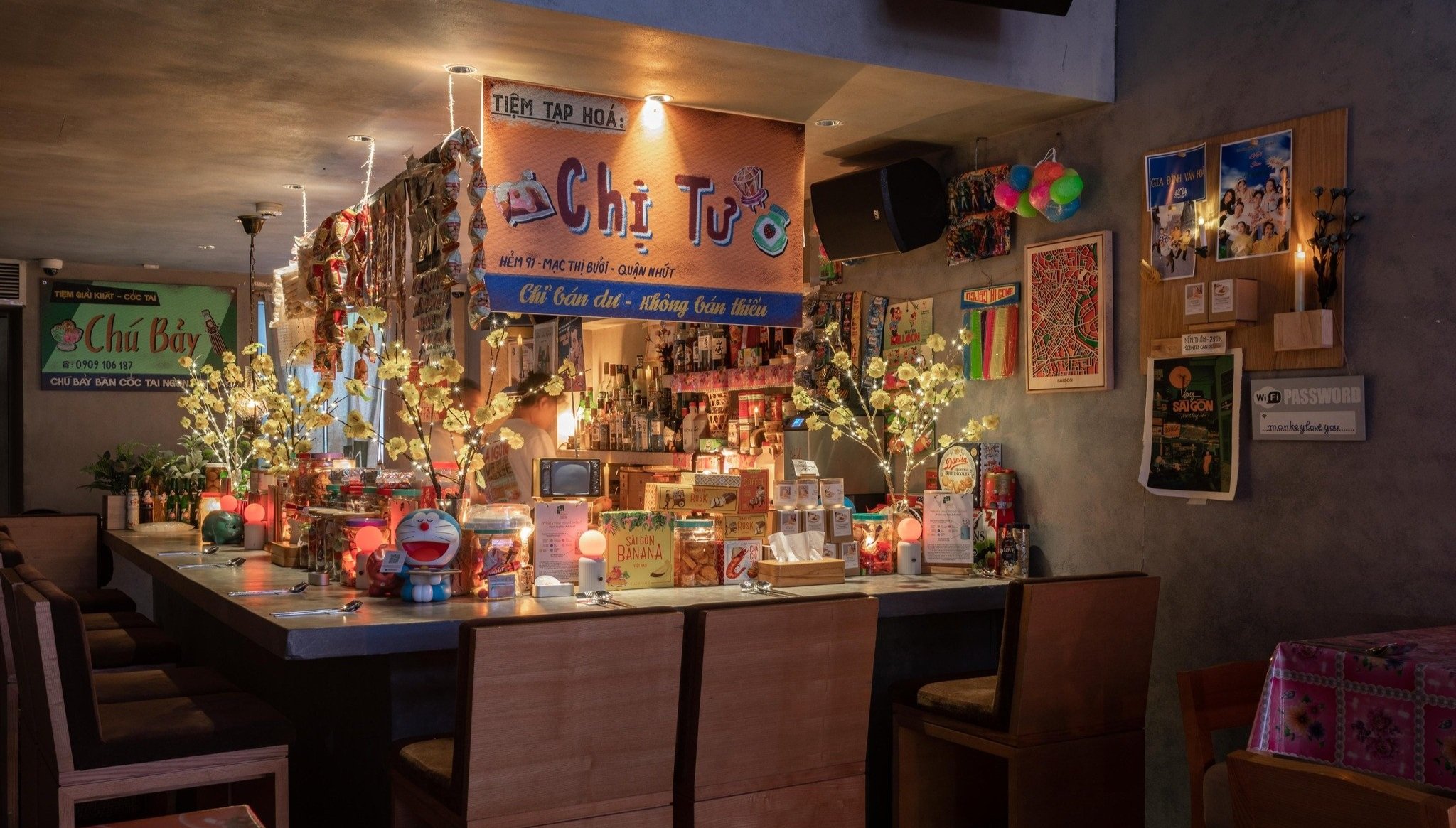









Like what you read?
Discover Vietnam’s coming-of-age food and drink scene with one of our tours and experiences exclusively available at Saigon Social